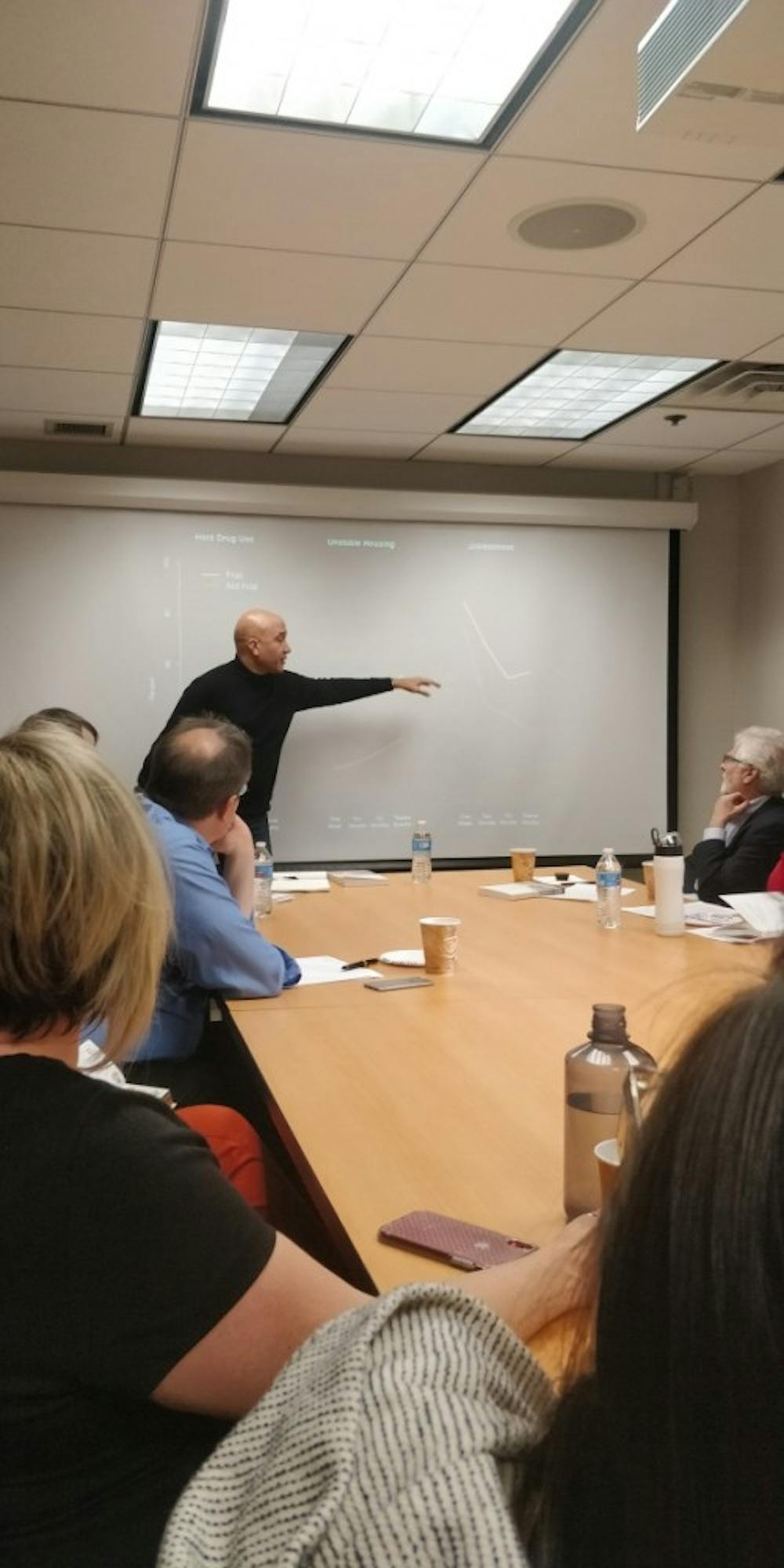Bruce Western, a professor of sociology and social justice at Columbia University, led a workshop on Inequality and Social Policy on Feb. 28. Western is known for his work on incarceration in the U.S. Hopkins Professor of Political Science Vesla Weaver and Assistant Research Scientist Stuart Schrader helped facilitate the discussion.
Western explained that incarceration rates in the United States have increased dramatically over the past four decades, especially for African-American men. According to his research, African-American men without a college degree have a 70% chance of going to prison at least once in their lifetimes.
These high incarceration rates inspired Western’s work on the Boston Reentry Study. The study, which Western conducted with fellow researchers Anthony Braga and Rhiana Kohl, followed the lives of several individuals who left prison and reentered neighborhoods in Boston.
Western, Braga and Kohl interviewed the participants of the study five times over the course of a year -- once before they were released, and four times after.
Western addressed some potential difficulties in conducting a study of this scale. Frequently, Western said, researchers performing reentry studies are unable to complete their research because it is difficult to stay in touch with the participants.
In order to combat this potential issue, the researchers of the Boston Reentry Study called the participants frequently and also maintained contact with their family members. Western said that it might be because of these efforts that researchers had managed to retain 94% of the participants after three years.
Western said many of the results of the study surprised him. For example, he noted that many participants were survivors of violence.
“A number of the people that we were talking to had perpetrated acts of serious violence. But we also learned a lot about exposure to violence very early in childhood, and these included experiences of victimization, and often very serious histories of violent victimization and exposure to violence as witnesses,” he said.
Because of this, Western and his colleagues redesigned the study to include questions about people’s exposure to childhood trauma.
Western also noted that people who were recently released from prison are often in poor health, with high rates of infectious disease, pain, disability and mental illnesses. About 15% of the participants in Western’s study had a serious mental illness.
Western also found that people recently released from prison suffered from higher rates of poverty and housing insecurity.
“The average income per person in our sample was about $6,000, and that’s about half the federal poverty line for people living alone, which poverty researchers call ‘deep poverty,‘” Western said.
Western believes that it is important to treat the formerly incarcerated with decency and compassion, including those who have been convicted of violent crimes. According to Western, many criminal justice reformers have not taken into account the social inequalities that he believes are the root cause of violent crimes.
“You cannot be a street corner drug dealer without being prepared to engage in serious violence because you’re very vulnerable to being robbed,” said Western. “And I think liberal criminal justice reformers have not been candid about the social role of violence in poor communities.”
Graduate student Allison Young attended the talk, and appreciated its connection to current issues on campus.
“It was great to have such an esteemed scholar on campus, and it was really interesting to hear about his new work,“ she said. “It was particularly relevant to the conversations going on campus at the moment about the private police force.”
Graduate student Joseph Boselovic was interested in the application of Western’s research to Baltimore.
“For me, the biggest takeaway was how do we approach the topic of criminal justice in terms of prisons and their institutions in Baltimore in a more justice-oriented way that serves the communities that are often detrimentally impacted by criminal justice?” he said.





